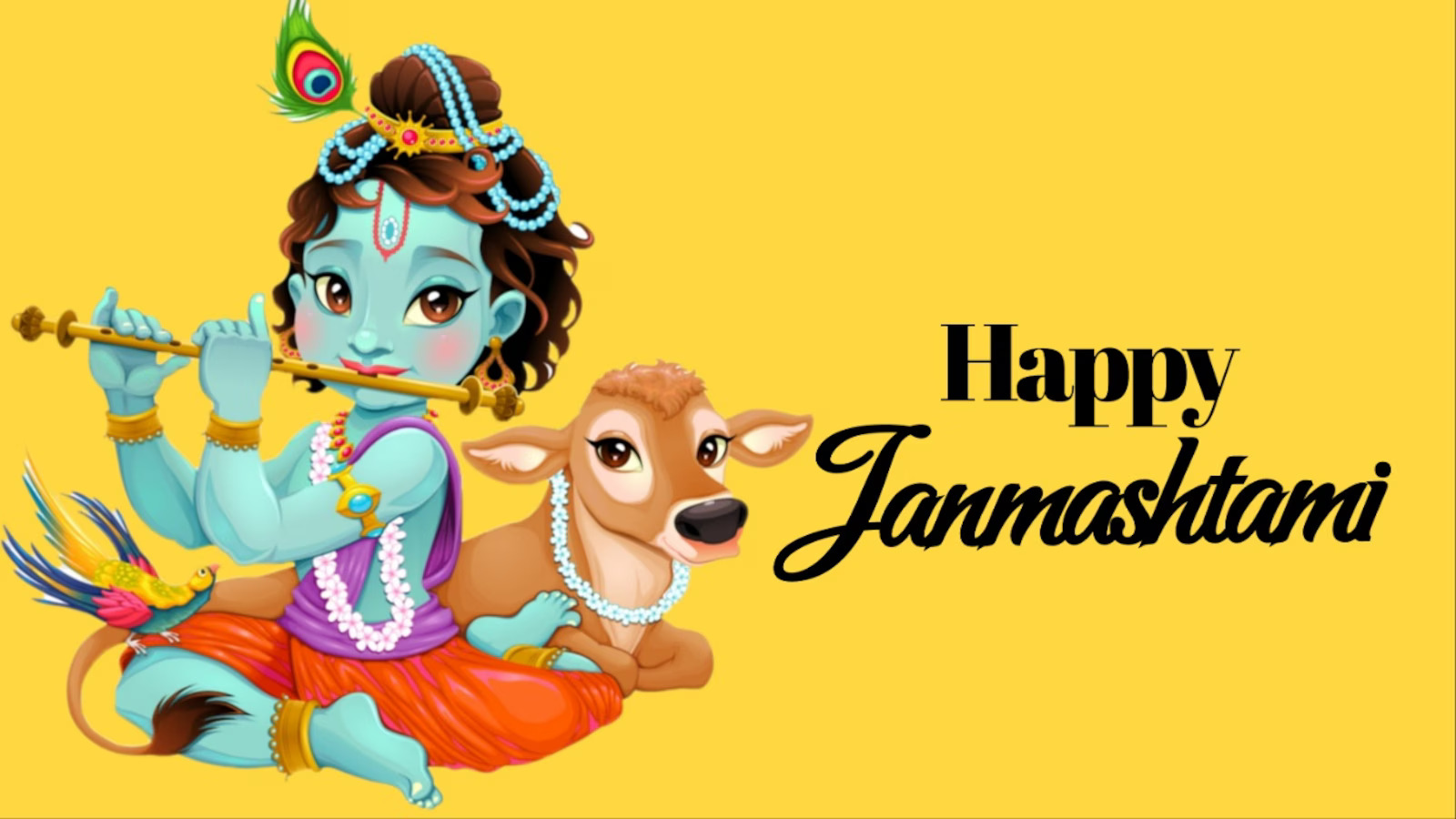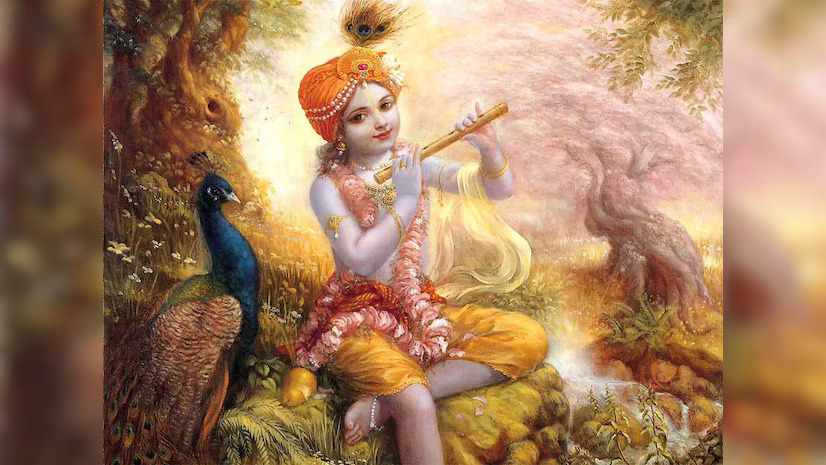| Posted on | entertainment
Krishna Janmashtami 2024: Date, Celebration, & Story
| Posted on
Introduction
Krishna Janmashtami, one of the most revered festivals in Hinduism, celebrates the birth of Lord Krishna, the eighth avatar of Vishnu. This auspicious day is marked by devotion, fasting, chanting, and rituals throughout India and many parts of the world where Hindu communities reside. Krishna Janmashtami in 2024 promises to be a day full of spiritual fervor and joy, uniting millions of devotees to commemorate the divine birth.
Krishna Janmashtami Date 2024In the year 2024, Krishna Janmashtami will be celebrated on Monday, August 26. The exact timing of the celebration depends on the time of the Ashtami Tithi (eighth day) of Krishna Paksha (waning phase of the moon) in the month of Bhadrapada according to the Hindu lunar calendar. The Rohini Nakshatra, under which Lord Krishna is believed to have been born, adds more significance to the timeline.
The timing of the Puja (worship) is crucial, as Lord Krishna is believed to have been born at midnight. In 2024, the time of Nishita Puja, which is considered the most auspicious, is expected between 11:45 PM and 12:30 AM. Devotees often fast throughout the day and break their fast after performing the midnight ritual, celebrating the birth. of Krishna with sweets, prayers and songs.

Meaning of Krishna Janmashtami
Krishna Janmashtami is not only a celebration of the birth of Lord Krishna, but also a day to reflect on his teachings and life. Lord Krishna is revered for his wisdom, his teachings in the Bhagavad Gita, his happy childhood and his role as protector of Dharma (righteousness).
The festival symbolizes the victory of good over evil, as the birth of Lord Krishna marked the end of the tyrannical rule of his maternal uncle, King Kansa, who was destined to be killed by Krishna. The celebration of Krishna Janmashtami is also a reminder of divine intervention in human affairs to restore moral order and protect the virtuous.
Traditional Celebrations Across India
Krishna Janmashtami is celebrated with great enthusiasm across India, with each region adding its unique celebrations.
1. Mathura and Vrindavan: Mathura, the birthplace of Lord Krishna, and Vrindavan, where he spent his childhood, are the epicenters of Janmashtami celebrations. Cities come alive with lively processions, devotional songs, dances, and re-enactments of Krishna's childhood (Raslila). Temples are adorned with flowers and lights and devotees throng to offer prayers and participate in the festivities.
2. Maharashtra: In Maharashtra, especially in Mumbai, Janmashtami is synonymous with the 'Dahi Handi' tradition. Young men and boys, called Govindas, form human pyramids to break a clay pot filled with curd, butter, or ghee, suspended above the ground. This symbolizes Krishna's childhood hobby of stealing butter from jars hanging out of Gokul's reach. The event is very competitive, with teams competing to win prizes, and the atmosphere is full of excitement and energy.
3. Gujarat: In Gujarat, the celebration is especially big in the city of Dwarka, where Lord Krishna is said to have established his kingdom. The Dwarkadhish temple is the focal point of the celebrations, with devotees gathering for special prayers and rituals. The temple is beautifully decorated and the atmosphere is full of devotional fire.
4. South India: In the southern states, Janmashtami is celebrated by drawing intricate designs called 'Kolams' in front of houses, baking special sweets, and reciting stories of Krishna's life. In Tamil Nadu, the day is also marked by the recitation of the Bhagavad Gita and the performance of traditional dances.
5. Eastern India: In West Bengal, Odisha, and Assam, Krishna Janmashtami is celebrated with devotional songs, dances, and recitation of the Bhagavad Gita. In Manipur, the festival is celebrated with Raslila performances depicting the divine love of Krishna and Radha.
Rituals and Observances
The rituals associated with Krishna Janmashtami begin before dawn and continue until midnight, the time when Krishna is said to have been born. Here are some of the main considerations:
1. Fasting: devotees observe a strict fast throughout the day, consuming only fruits, milk, and water. Some also observed a "Nirjal" fast, where they also abstained from drinking water. The fast is broken only after Midnight Puja.
2. Abhishek: The idol of Lord Krishna is bathed in Panchamri, a mixture of milk, honey, ghee, curd, and sugar. The Abhishek ceremony is accompanied by the singing of Vedic hymns and prayers.
3. Jhulan: Devotees place a cradle or swing decorated with flowers, symbolizing the baby Krishna. The idol is placed in the cradle and devotees take turns rocking it, singing hymns and devotional songs.
4. Midnight Puja: The most important ritual of Janmashtami is Midnight Puja, which marks the exact moment of Krishna's birth. The idol is dressed in new clothes and sweets, mantra, and fruits are offered. The sounds of conch shells, bells ringing, and devotional chants fill the air as devotees celebrate the divine birth.
5. Bhajans and Kirtans: Devotional songs and hymns in praise of Lord Krishna are sung throughout the day and night. Temples and houses resound with the sounds of bhajans and kirtans, creating an uplifting atmosphere.6. Reading the Bhagavad Gita: The teachings of Lord Krishna as conveyed in the Bhagavad Gita are read and meditated upon. This practice is considered very auspicious and a way to connect with the divine wisdom of Krishna.

Celebrations around the world
Krishna Janmashtami is not only celebrated in India but also by Hindu communities around the world. In countries like Nepal, Bangladesh, Fiji, and Mauritius, the festival is celebrated with the same enthusiasm and devotion. In the United States, United Kingdom, Canada, and Australia, Hindu temples hold special prayers, cultural programs, and community gatherings to mark the occasion.
The International Society for Krishna Consciousness (ISKCON) plays an important role in promoting Janmashtami celebrations around the world. ISKCON temples around the world organize elaborate events, including processions, spiritual talks, and distribution of Prasad, attracting devotees from various backgrounds.
Conclusion
Krishna Janmashtami 2024 will be a day of deep spiritual significance and a joyous festival for millions of devotees around the world. The festival not only pays homage to the birth of Lord Krishna but also remembers his teachings and the eternal values he embodied. Whether through fasting, prayer, singing, or the breaking of Dahi Handi, Krishna Janmashtami unites people in their devotion and respect for the divine. As the day approaches, preparations intensify and excitement builds, culminating in a night of devotion, celebration, and reaffirmation of faith in the eternal teachings of Lord Krishna.
0
0 Comment
